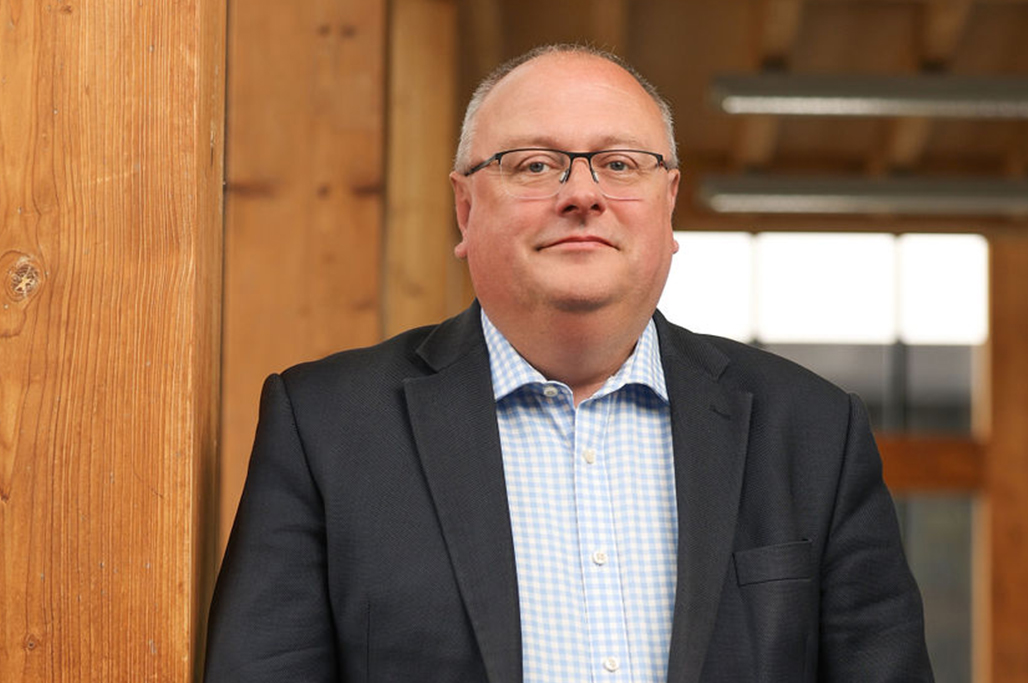
SUSTAINABILITY

Lee Fraine, head of sustainability and building services at Rapleys, said: “The only real focus on sustainability was the acknowledgement that we need another source of power as renewables are not enough and funding for nuclear energy. We will wait for the consultation detail to be published but in theory it’s a sensible move because we cannot rely on the grid to support the current sustainability measures being put in place.
“However, nothing was mentioned about EPCs despite us getting pretty close to the 1 April cut off where it becomes ‘unlawful’ to continue to let commercial property with an EPC rating of below an E, with further EPC white paper guidance on the horizon with even more stringent EPC implications up to 2030 where the minimum EPC requirement will be a C rating. There are obviously penalties for those landlords who fail to meet the minimum EPC ratings, these indicated penalties start at £5,000 but go right up to £150,000 for both commercial and residential which is yet another stick for landlords already facing rising energy costs, business rates, supply chain delays and increasing prices, there is so much to navigate generally in the world of property right now that this uncertainty makes it really scary for smaller private landlords. We wanted to see an explanation what the exemptions mean for those who cannot afford to upgrade or those landlords without the capital to undertake works even within the exemption limited payback of seven years. The obvious other concern is potential breach of lease caused by the landlord’s sub-standard situation and the future yield uncertainty of properties that will never attain an EPC rating of a C by 2030, regardless of the cost. With an estimated 130,000 commercial properties at grade F or G comprising 93 million sq/m which is a huge amount of real estate to face obsoletion affecting hundreds of thousands of owners. Unfortunately nothing has been mentioned to support these issues.”
BUILDING

Simon Harbour, building consultancy partner at Rapleys said: “Despite expectations that some sort of tax cut would lure tradesmen back into the market and hopefully plug some of the gaps that have made labour expensive and certain trades scarce in recent years, with a skills shortage particularly evident post Brexit but nothing of this nature properly emerged. Sadly this trend has moved on with technical qualified surveyors and building surveyors in particular increasingly difficult to hire and salaries unsustainable as a result. In recent years we have seen a real decrease in those graduates choosing building surveying for their specialist area, with APC passes in this discipline at a real low, which could be a natural progression from concerns about the construction industry as a whole. The whole building profession needs much greater support – whether you’re at a desk or out on site, because if people think its difficult to be in construction, we need to educate and incentivise better on a sustainable level.”
PLANNING

Sarah Smith, planning partner at Rapleys, said: “What we need in the property industry is certainty and commitment to sustainable growth. This uncertainty over what might be added or changed in the planning system or Levelling Up Bill risks contributing to a further slowing of the already onerous planning policy process, and undermining the promotion of sustainable development in the right places. This makes development, and the planning benefits that can arise, more challenging to bring forward and is likely to increase planning by appeal.”
RETAIL

Richard Curry, head of retail at Rapleys said: “In order for our high streets to survive we need some breathing space for retailers and retail services to reformat and adapt to the world around us. It has been like whack-a-mole for these businesses with interest rates, inflation, business rates, energy crisis, EPCs, supply chain issues, talent shortages, the to-ing and fro-ing on VAT and of course the ongoing political uncertainty.
A proper pause on business rates would have allowed landlords of empty buildings to repurpose and retailers to rethink their formats and footfall strategy for the longer term. At the moment we have a lot of acquisition programmes being scaled back by national retailers because of these uncertainties and this will likely go on until after a general election as it’s just too risky for businesses to open new stores unless they are no brainers for their catchment and strategy.
A lot of estates are deciding whether to use Capex for new stores or repurposing old stores to ensure they are future proofed sustainability-wise with the first commercial EPCs deadline imminent but largely unclear on the governance and penalties. If growing brands don’t need to rush an acquisition and/or have a more complicated and thus expensive fit out then they’ll wait and see how the budget and the future plays out. For example, will people start cutting their gym memberships or clothing allowances. Until we have certainty of government, policy and hurdles, the wait and see approach will prove sticky in this market for the majority of businesses – even if, ironically, it’s a good time to spend more.
“Pubs will of course welcome the draught relief badged as ‘the Brexit Pubs Guarantee’ meaning it’s 11% cheaper to have a pint in a pub than a supermarket”.
AUTOMOTIVE

Mark Frostick, partner in automotive & roadside at Rapleys, said: “EPCs and business rates continue to cause issues for the automotive industry. Car dealerships for the most part are by their nature somewhat energy inefficient and costly properties to run with more than 3,500 of them rated below an E certificate for their energy performance. It’s going to take time for these businesses to adapt and all the while energy costs, build costs and business rates are rising. We would have liked to see the Chancellor pause business rates for all those business owners that are serious about investing in retrofitting and upgrading the energy performance of their properties with the money for business rates transferred to sustainable measures.”
Related news
Why Warm Homes is such a hot topic
Martin Gladwin and Titus Wing explore the Government’s Warm Homes Plan









